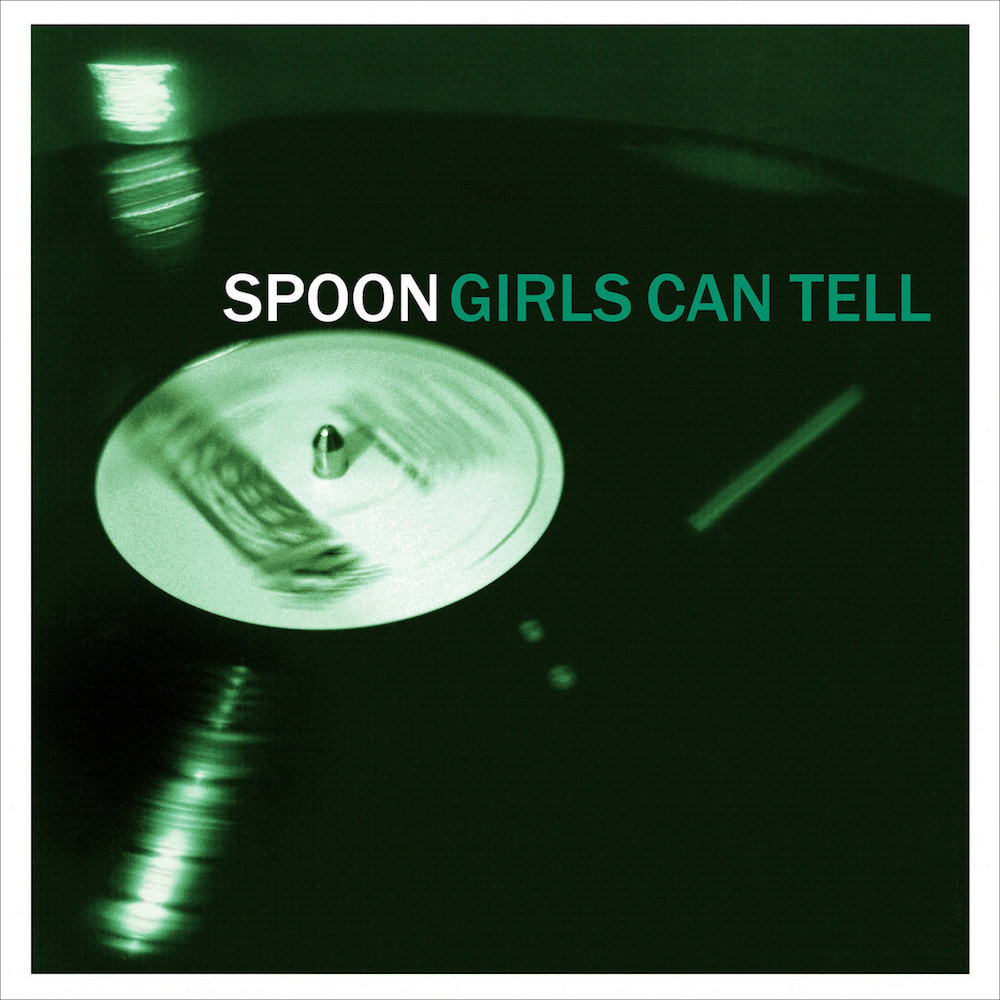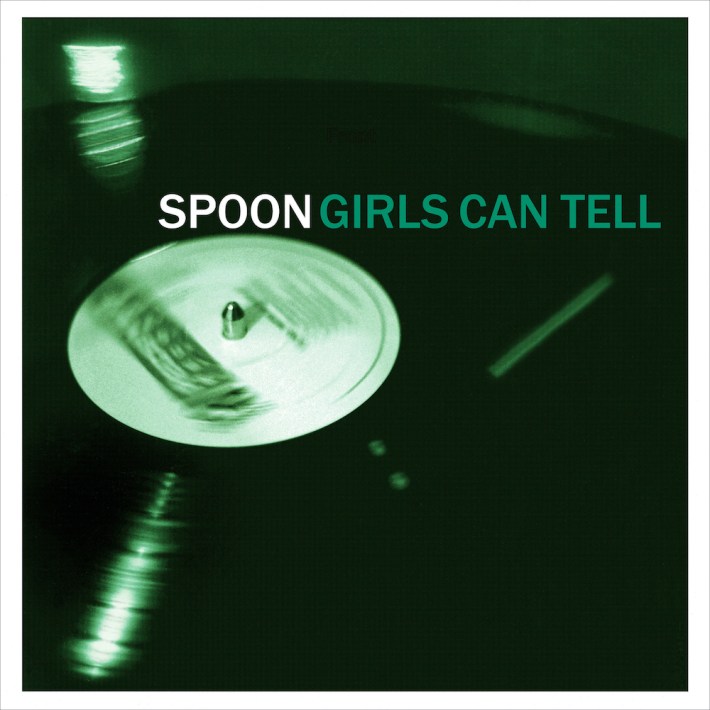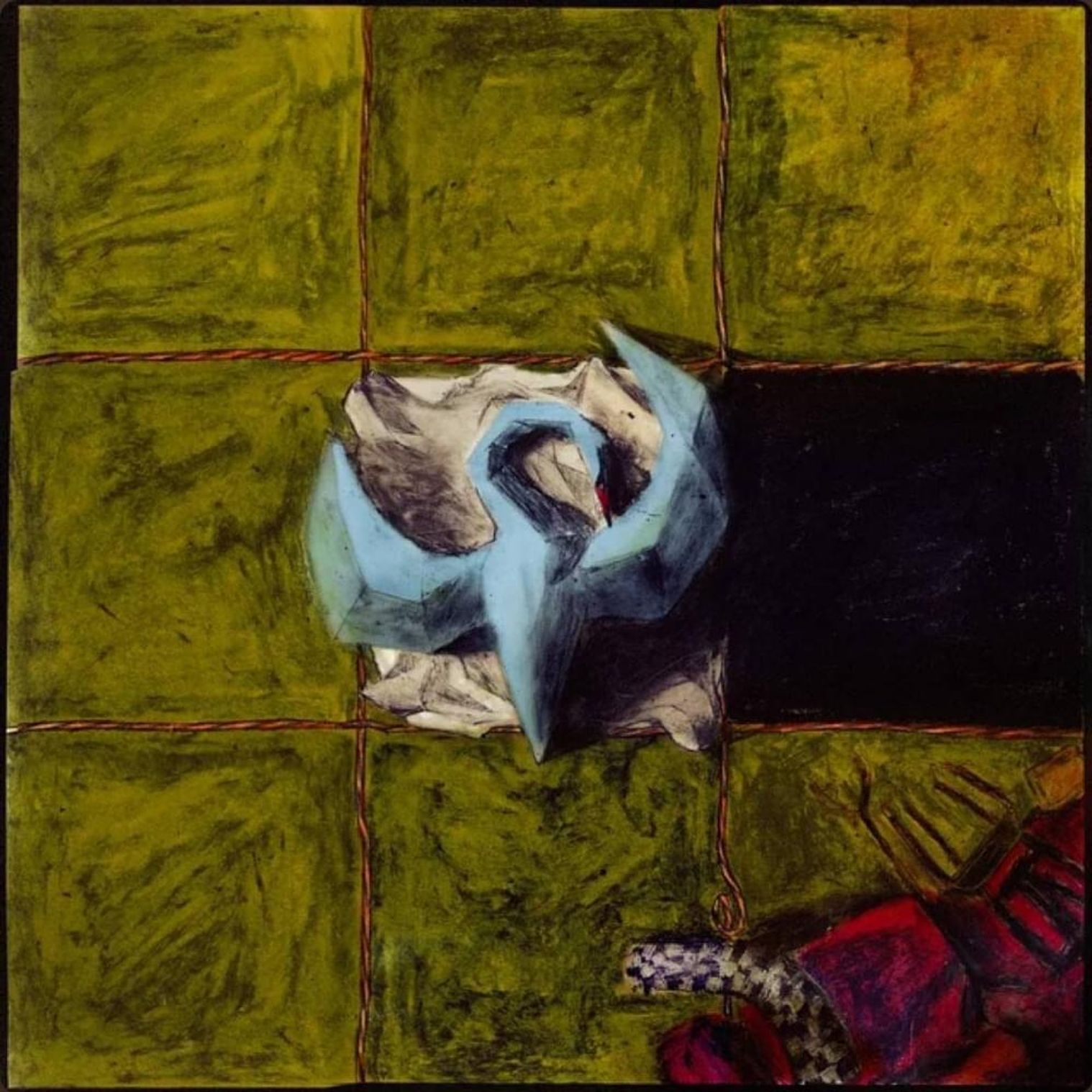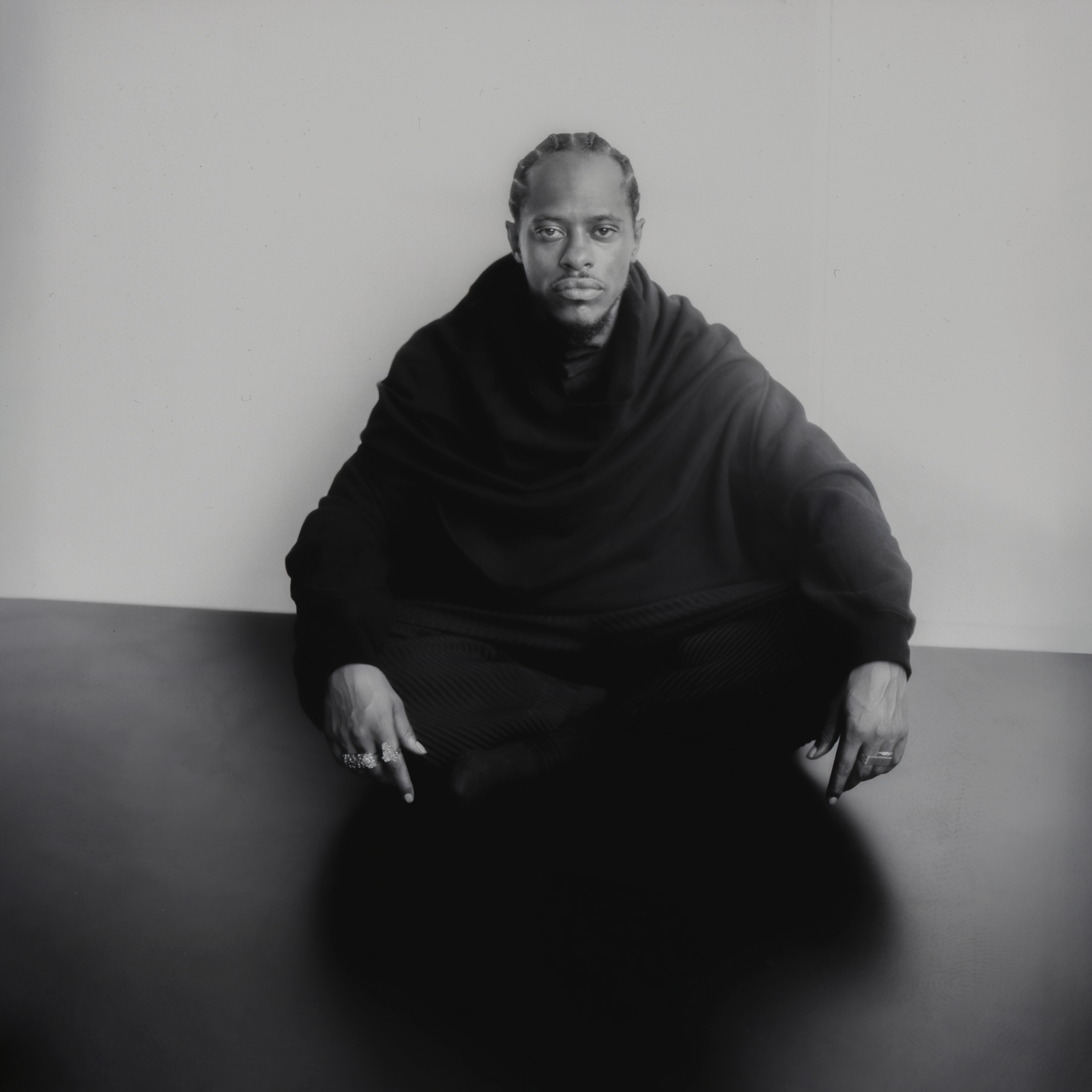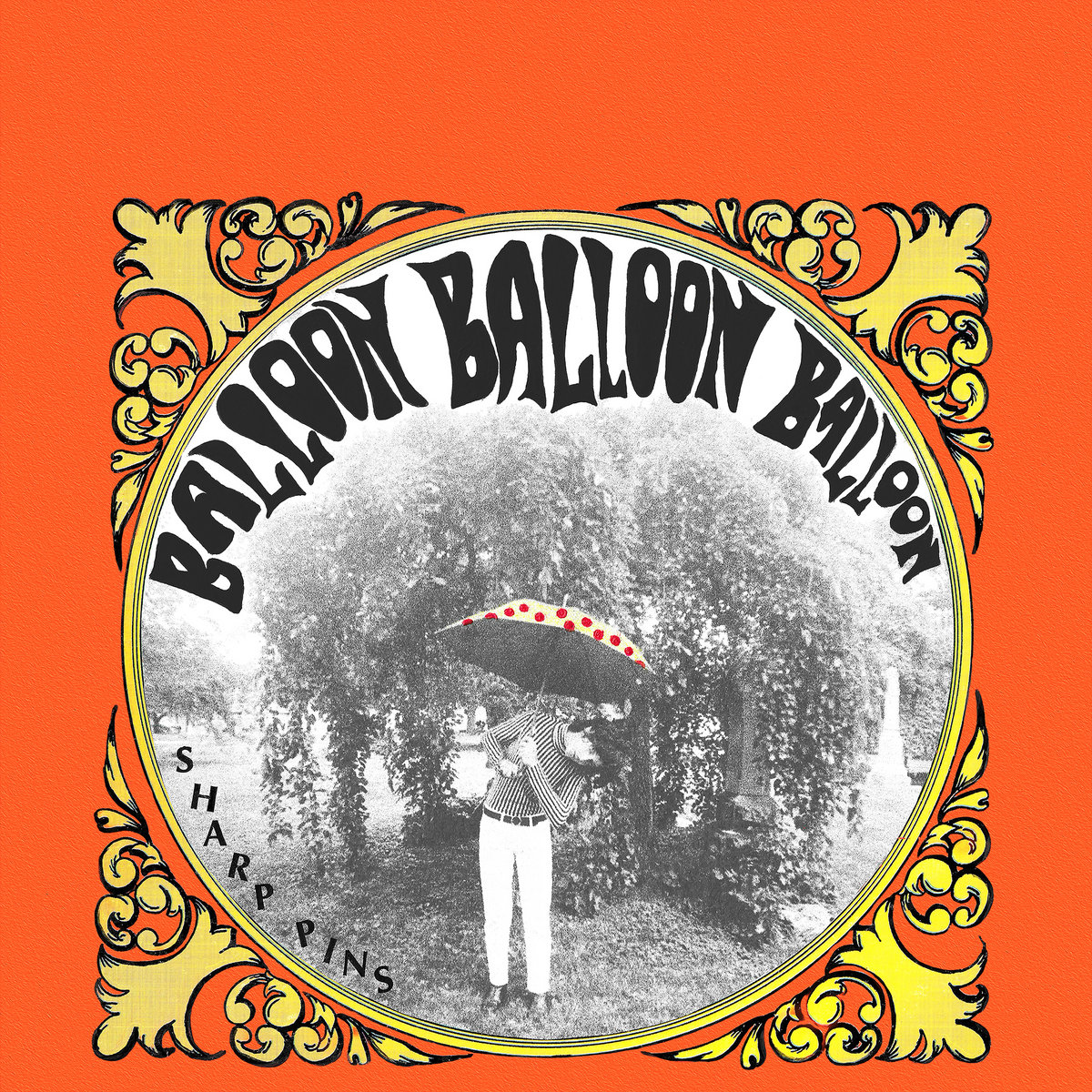"It feels cool to like it." My friend Jessica Hopper wrote that in her Hit It Or Quit It zine, back when Spoon's Girls Can Tell came out. (I can't find my copy of that issue right now, so I'm quoting from memory.) To this day, I've never seen a better description of the appeal that Girls Can Tell still has. Tomorrow is the 20th anniversary of the release of Girls Can Tell, and the album hasn't lost any of that simple but hard-to-describe coolness.
Spoon came from the indie rock world. If you knew of them, you knew of them from dive bars with sticky floors and yellowing posters from old Unsane shows up on the walls. If you'd known anything about Spoon -- not, by any means, a given -- then you would've probably expected their third album to be that same kind of scrawling, scrambling, desperate feedback-rock. Instead, the Austin band came back with something smooth and wry and confident -- something that felt cool. Bands like Spoon weren't supposed to come up with things that felt cool. It hit like a quiet revelation.
On their way to becoming cool, Spoon had to go through a lot of pain and failure. Spoon had formed eight years earlier as an Austin bar band. They'd figured out a scratchy, unkept, weirdly erudite sound -- Wire beating up the Pixies in a back alley -- and they'd released an album on Matador in '96. It hadn't sold. Somehow, Spoon got swept up onto Elektra during the dying days of the post-Nirvana gold rush. They'd released one major-label album, and it hadn't sold either. Mere months after they put their names on the contract, their A&R guy left Elektra, and the label promptly dropped Spoon. Spoon spent three years nursing old wounds, and they released a two-song 1999 song calling out their old A&R guy by name: "When you do that line tonight, remember that it came at a steep price." They seemed like they were done, and they didn't seem happy about it.
Britt Daniel, Spoon's frontman, moved to New York, subletting a loft in Williamsburg and working temp jobs in Midtown offices. Jim Eno, their drummer and only other constant member, stayed in Austin, where he had a wife and kid and a day job designing semiconductor chips. But Spoon kept writing songs. Daniel and producer Mike McCarthy eventually went back to Austin, working on songs in Jim Eno's garage studio, mostly while Eno was at work. Spoon didn't have a label at the time, so they kept recording on their own -- removing, reducing, honing. As they chipped away at Girls Can Tell, Spoon became something other than the band that had cranked out those messy first two albums. They became the group we know today.
Spoon came up with a new formula: If something didn't absolutely have to be on a song, then it was gone. The band also got into the idea of using instruments that wouldn't ordinarily appear on indie rock records: Mellotron, vibraphone, cello. Daniel was listening to the Kinks, Elvis Costello, Fleetwood Mac, oldies radio. He was thinking about classic songcraft. Somehow, Spoon found their adventurous new sound palette without losing the spiky swagger that you could hear on their old records. A song like "Fitted Shirt" fits together like an intricate sculpture. There's still a distorted, snarly guitar riff in there, but it's deployed precisely, and it shares space with a shivery harpsichord line that enters at the exact right moment.
Lyrically, too, Daniel wrote with pointed specificity, and he took out everything that didn't need to be there. The things he sings on Girls Can Tell are simple and evocative. You don't always know all the details, but what comes through matters. If there's a mid-song vignette about a human resource clerk who's unhappy about how her life turned out, then you might not understand why it's there, but it sticks with you anyway. A lot of Girls Can Tell is about a long, protracted breakup, and Daniel's bits about that can sting in their concision: "Imagination ain't kind on us tonight." (Daniel and future Fiery Furnace Eleanor Friedberger were on-again/off-again at the time.) But a lot of the album is still clearly a guy trying to grapple with his own failure at rock stardom: "Tough break, had you send me back home to ma. Back to cow town and the fish shop and the mall."
But Spoon had never sounded less like failures. Their writing had immediacy and confidence and hooks for days, and Girls Can Tell sounded a whole lot more like a potential hit than their major-label LP A Series Of Sneaks ever did. Girls Can Tell didn't sound like anything else coming out in 2001, either in the mainstream or the underground. It seemed to have its own out-of-time context. Discovering it felt exciting -- a reminder that every record didn't have to follow the same set of rules.
Spoon had a version of Girls Can Tell ready to go about a year before it finally came out. The band shopped demos around before landing on Merge Records, which was still a relatively small indie at the time. (A friend of mine has a cassette copy that Britt Daniel gave him at SXSW in 2000.) When Girls Can Tell came out, I don't remember there being a whole lot expectations for the album. I saw Spoon open for Guided By Voices around that time, and I remember absolutely nothing about their set. When I listened to Girls Can Tell for the first time, it was a pure whim. A promo copy showed up at the college radio station where I was volunteering, and I threw it on. It wasn't a love-at-first listen scenario, but the album sounded cool. It felt cool. I made a cassette dub, and I kept listening to it, again and again. Girls Can Tell became the album I threw on when I couldn't decide what I wanted to listen to. It wormed its way into my brain.
I bet a lot of people had the same experience I did. Girls Can Tell snuck up on people. For the band, the album felt like a game-changer. They were playing to bigger rooms and selling more records than they'd managed in the '90s. But out in the world, the reputation of Girls Can Tell grew slowly -- often through word of mouth, in the pre-blogosphere era where that actually meant words coming out of people's mouths. I didn't have any long conversations about Spoon at the time. The conversations would be more like: "Hey, what are you listening to?" "This band Spoon." "Oh. Hmm. Sounds cool." "Yeah, it is." And that would be it. But if enough people are having that conversation about your band, then your band is doing something right.
Spoon didn't become a massive headlining-outdoor-sheds band until years after Girls Can Tell. The band had to make a bunch more excellent records and convince a lot more people of their coolness. It was a whole process. But that process began with Girls Can Tell, and Girls Can Tell still feels cool today.
